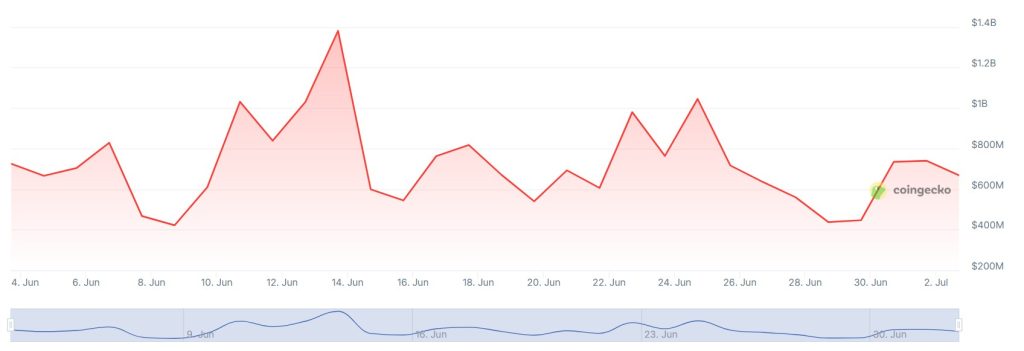Bithumb Spins Off Subsidiary in Bold IPO Push—As Banking Giants Flock to Stablecoin Alliance
South Korea's crypto heavyweight makes power play for public markets while traditional finance scrambles to catch up.
Bithumb's corporate reshuffle comes as institutional interest in stablecoins hits fever pitch—with banks now elbowing each other for seats at the table. The exchange's IPO gambit could rewrite Asia's crypto landscape overnight.
Meanwhile, Wall Street's latecomers form yet another consortium to 'study' blockchain innovation—presumably between martini lunches and golf outings. The stablecoin gold rush is on, but can legacy players move faster than regulatory scrutiny?
Bithumb Spinoff Gets Green Light
The South Korean media outlet News Tomato reported that Bithumb’s IPO process has now begun in earnest following a Supreme Court ruling that absolved the former Bithumb Holdings Chairman Lee Jung-hoon of fraud charges in March this year.

After the ruling, Bithumb asked the regulatory Financial Services Commission (FSC) to approve its spinoff plans in April.
The FSC was not fully satisfied with the initial application, but Bithumb has since amended its application twice.
At the end of June, the FSC finally gave its approval for a plan that will see Bithumb continue operating its existing exchange platform under its current name.
New Firm Will Act as Holding Company
The newly established corporation, tentatively named Bithumb A, will act as a holding company. It will also spearhead new Bithumb-related business investments.
Bithumb has chosen Samsung Securities as its lead manager for the KOSDAQ listing. The company is currently completing due diligence protocols.
Bithumb explained that its “restructuring” WOULD help optimize growth strategies for each of its business arms “by separating their functions.”
The MOVE will help Bithumb “secure agility in new business avenues,” the exchange claimed.
However, the media outlet said that the market is “still cautious” about an “opaque governance structure” that “could undermine investor confidence.”
Currently, Bithumb is owned by Bithumb Holdings, with the firms DAA, Vidente, and BTHMB all owning sizeable stakes. Other shareholders hold a 25.1% stake in the firm.
However, the media outlet wrote that the “actual control structure” between these parties “has not been clearly revealed.”
An unnamed domestic securities industry insider said that a “complex and opaque governance structure cannot help but promote anxiety among investors.”
The insider said that if it wants to attract capital from external investors, Bithumb will need to demonstrate a “high level of transparency and social responsibility.”
Busan Bank Joins Stablecoin Union
Meanwhile, the South Korean news agency Yonhap reported that BNK Busan Bank announced on June 2 that it has officially joined the Stablecoin Division at the Open Blockchain/DID Association (OBDIA).
The bank added that it has also begun conducting broad joint research projects focusing on stablecoins.
OBDIA launched as a blockchain-focused non-profit organization in 2018. However, in April this year, the group experienced a new lease of life when it added a stablecoin subgroup.
A slew of major banks have joined the division, including the high street heavyweights Kookmin, Shinhan, Woori, Nonghyup, and IBK Industrial Bank.
One of the nation's largest umbrella labor groups, the Korean Confederation of Trade Unions, said Wednesday it will stage a two-day, large-scale strike later this month to demand the government again push for a pro-labor act.https://t.co/U5CFKhuK2y
— The Korea Herald 코리아헤럴드 (@TheKoreaHerald) July 2, 2025The neobank K Bank has also joined OBDIA, with its online rival Toss Bank also reportedly keen on becoming a member.
Yonhap reported that Busan Bank plans to build a “digital currency model” that can be used on the South Korean market.
The bank says that its experience of operating the blockchain-powered local stablecoin Dongbaekjeon will prove of great importance. A Busan Bank spokesperson explained:
“Since stablecoin-related regulations are still in progress, we need to develop capabilities that let us respond to various scenarios with flexibility. We want to play a meaningful role [once the government] institutionalizes [stablecoins].”
Lawmakers are pressing ahead with work on a bill that seeks to lay the groundwork for the issuance of private-sector stablecoins.
The move will partially reverse a ban on all forms of token issuance that has been in place since 2019.

